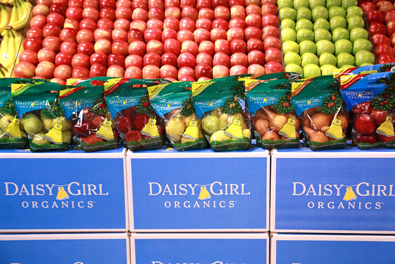
08 Nov Just in from The Produce News: Organic apple opportunities soar with 2016 crop
The short apple harvest days of 2015 are long gone and organic apple crops are up in a big way for 2016. Here’s the full story reprinted directly from our friends at Produce News…

Organic apple opportunities soar with 2016 crop
- October 28, 2016
Driving organic apple sales is getting easier for retailers thanks to a huge increase in organic apple production in Washington state. Following a short harvest in 2015, new crop organic apple production rebounded this year presenting supermarkets with a historic opportunity to increase organic sales.
CMI Orchards, one of the larger organic apple and pear producers in Washington state, reported its organic apple and pear production is up by 60 percent over last season. According to Steve Lutz, CMI’s Vice President of Marketing, the big jump in organic apple production has retail customers selling organics at a record pace.
“The rebound from a short crop last year combined with new orchards achieving certification, increased CMI’s overall organic volume by 60 percent,” Lutz said in a press release. “This has really opened the door for supermarkets to aggressively merchandise, promote and sell organic apples and pears.”
Lutz said one of the key opportunities for supermarkets is to “build basket size” by transitioning conventional apple buyers up to organic apples. Nationally, organic apples carry an average price of $2.33 per pound versus a price of $1.63 for conventional apples, a premium of .70 cents per pound for organics.
Lutz believes a key factor in building organic sales in supermarkets is in leveraging natural “entry points” for shoppers. “We know from the success of our top-selling Daisy Girl Organics brand that when consumers make the shift from conventional to organic, they first look for the common organic version of the apple variety they currently buy. Retailers can best leverage the organic opportunity by initially focusing sales programs on the widely popular core varieties like Gala and Red Delicious.”
“National scan data shows that organic Red Delicious have the lowest retail price point of all major organic apple varieties, even lower than conventional pricing for many niche apples,” Lutz said. “Sharp retailers are using organic Red Delicious and Gala apples to create low-price entry points to entice potential organic shoppers. This has the added benefit of building organic sales for the retailer while reinforcing a value message with consumers.”
Loren Foss, CMI Orchards’ Daisy Girl Organics account manager, said from a packaging standpoint, two-pound pouch bags are a huge hit with consumers, a trend he said shows no signs of slowing. “Two-pound pouches are completely changing organic apple and pear merchandising,” said Foss. “National scan data shows that two-pound pouch bags are the fastest-growing segment of the organic apple and pear business. It’s just a superior package for selling organics.”
Foss said the Daisy Girl Organics suite now includes 19 different apple and pear varieties, creating a turnkey opportunity for retailers to implement a full organic pouch bag lineup.
Foss said CMI expects a big year for Daisy Girl Organics. “Daisy Girl has the No. 1 selling branded two-pound pouch bag for organic Red Delicious, Gala, Honeycrisp, Fuji, KIKU, Kanzi and RosaLynn apples as well as Anjou, Bosc, Bartlett and Red Pears,” he said. “With CMI’s big jump in organic production, we expect to deliver record sales for our retail customers.”
(photo: The Produce News)


